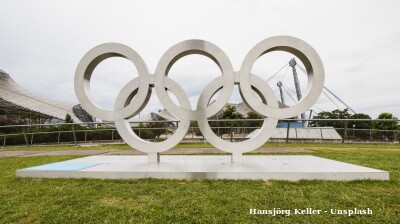Britain has redrawn its maps of the Middle East to label the "State of Palestine" for the first time after Prime Minister Keir Starmer announced London's formal recognition of Palestinian statehood on September 21.
The update appeared across the Foreign Office's website, including travel advisories, embassy listings and regional maps. "In the face of growing horrors in the Middle East, we are acting to preserve the chance of peace and a two-state solution," Starmer said.
The UK joined Canada and Australia in recognising Palestine, whilst Spain, Ireland and Norway had already done so earlier in 2025. Diplomats expect more EU members to follow, though Washington remains opposed, insisting statehood must come through direct talks with Israel.

The move comes ahead of a Saudi-French-led conference at the UN General Assembly, where France and other countries are expected to announce similar recognition. Belgium is also preparing to follow suit, with Foreign Minister Maxime Prévot warning of possible sanctions against Israel.
The map changes represent a tangible manifestation of Britain's policy shift, moving beyond diplomatic statements to practical implementation across government platforms.
According to the latest version of the website, the Israeli page has also had its map changed to reflect the UK government's recognition of the State of Palestine.
For Gaza, the FCDO advises against all travel to the territory and within 500 metres of the Gaza border. The advisory reflects ongoing security concerns and active conflict in the region.
On the West Bank, the FCDO advises against all travel to Tulkarm Governorate, Jenin Governorate, and Tubas Governorate except Route 90.
For the remainder of the West Bank, the advisory recommends against all but essential travel, with specific exceptions for East Jerusalem, Bethlehem Governorate, Ramallah Municipality, Jericho municipality and areas south of it including the Allenby crossing.
The advisory also exempts Highway 1 linking Jerusalem and Tel Aviv and areas south and west of the highway including Highway 3, plus Route 443 and Highway 45 which connect Jerusalem and Tel Aviv.
For Northern Israel and the Occupied Golan Heights, the FCDO advises against all travel within 500 metres of the Area of Separation in the occupied Golan Heights known as the 'Alpha line'. Travellers are warned not to attempt entering the occupied Golan Heights through Syria.
The advisory specifically warns against all travel to the Sheba'a Farms and Ghajja areas, and against all but essential travel within 500 metres of the Lebanese border.
The timing coincides with the UN General Assembly meetings in New York, where Palestinian statehood recognition has become a key diplomatic issue. The coordinated approach by multiple Western nations suggests a broader shift in international sentiment regarding the Israeli-Palestinian conflict.
News
_transits_the_East_China_Sea_1762648449.jpg)
North Korea issues warning to the US and South Korea
The ruling authorities in North Korea have issued a stark warning of “more offensive action” in response to intensified military cooperation between South Korea and the United States, signalling a further deterioration in regional dynamics.

Russian oil output sees growth in October, but federal revenues crash
Russia’s crude oil output increased modestly in October even as state revenues from the oil and gas sector continued to decline sharply.

US President Trump says open to hearing Iran sanctions relief requests
US President Trump says he is open to hearing Iran's sanctions relief requests whilst extending national emergency status for another year. Iran's Supreme Leader says cooperation impossible whilst US supports Israel.

US slams “Kremlin puppet’s” Gunvor Lukoil asset deal
The US doubled down on its latest sanctions by appearing to cancel Gunvor’s deal with Russian oil major Lukoil, labelling the trader a “Kremlin puppet.”




